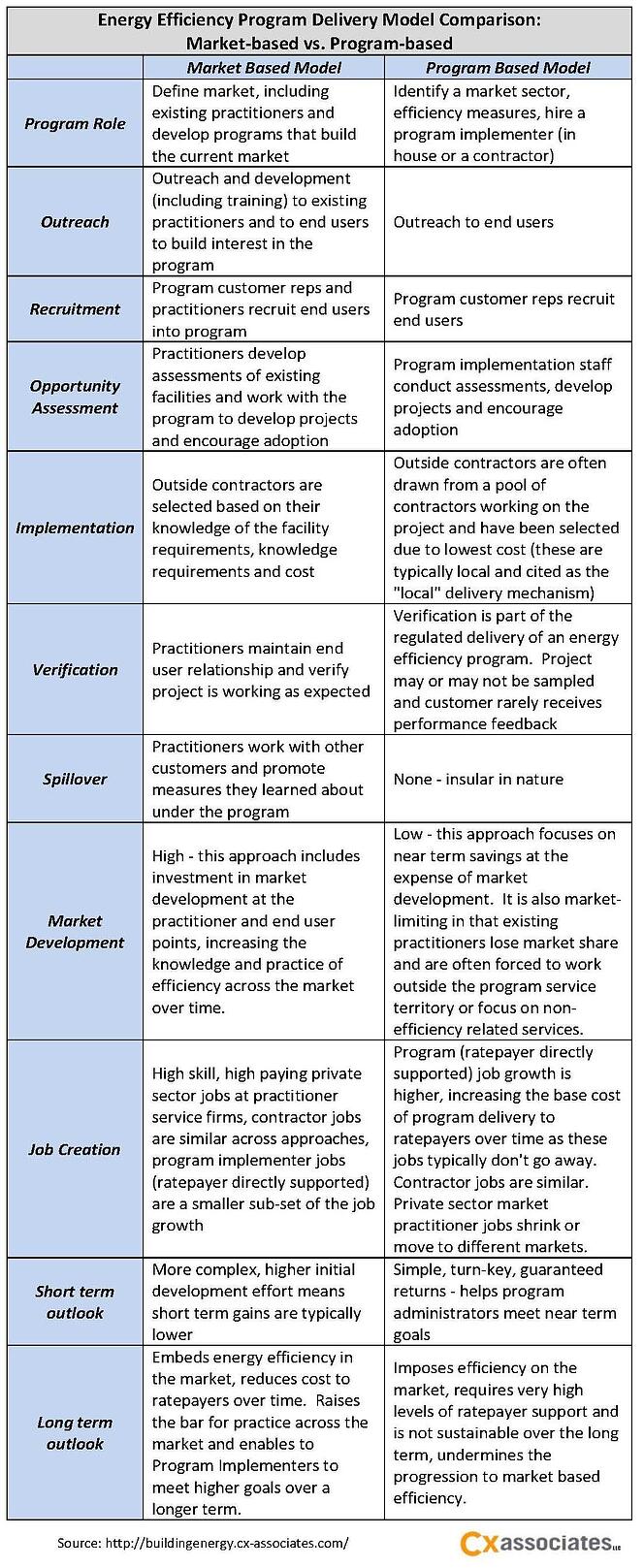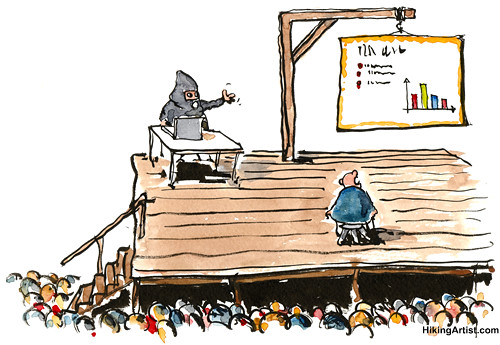Today ratepayers in many states are making large investments in energy efficiency. I am a passionate advocate for the need to invest in cost effective improvements to our building infrastructure. However, I am concerned that many efficiency programs are taking short cuts to attain near-term goals that will undermine the market’s ability to generate deeper and more lasting efficiency improvements over time.
After years of working with energy efficiency programs in multiple states, I have concluded that 11 factors affect a program's capacity to generate short-term versus long-term energy efficiency improvements.
- Program role: Who is involved and what is the connection to the current market?
- Outreach: Which audiences are being reached and is education and training included?
- Recruitment: Who is involved in recruiting end users into the program?
- Opportunity assessment: Who is involved in assessing efficiency opportunities?
- Implementation: What is the process for selecting contractors to implement the efficiency measures?
- Verification: Who is responsible for verification, and are results shared with the end user?
- Spillover: Is there an easy way for efficiency measures to be shared beyond the immediate projects?
- Market development: Is there a market investment made at the practitioner and end user level?
- Job creation: How many jobs are created, at what level, and for how long?
- Short-term outlook: How quickly and how likely is it that near-term goals will be met?
- Long-term outlook: Is energy efficiency embedded into the market at a sustainable cost to ratepayers?
The following table summarizes my comparison of a market-based model to a program-centric model for energy efficiency program delivery and the pros and cons of each.
In order to achieve deep and lasting cost reductions from energy efficiency, I think we need public policies that support a market-based approach. What do you think -- and why?





